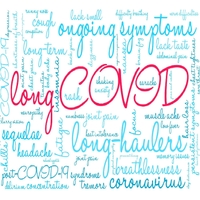
A recent study published in BMJ Nutrition, Prevention & Health has found a modest association between dietary supplement consumption, including vitamin D, omega-3 fatty acids, probiotics and multivitamins, and lower risk of testing positive for the severe acute respiratory syndrome coronavirus 2 (SARS-CoV-2) in women (1).
The observational study utilised self-reported data from the COVID Symptom Study app launched in the United Kingdom (UK), United States (US) and Sweden in March 2020. The app is a community-led initiative designed to capture longitudinal data relating to the coronavirus disease-19 (COVID-19) pandemic. These data include demographic information, comorbidities, COVID-19 test results and symptoms, required health interventions and related outcomes.
In addition, users were asked retrospectively to record information on supplement use, with regular supplement users defined as individuals taking more than three supplements a week for at least three months.
Researchers analysed data collected from 372,720 UK subscribers (aged 16-90 years) between May to July 2020 and compared it to data gathered from 45,757 US and 27,373 Swedish app users who reported test results for SARS-CoV-2 infection.
In the three-month analysis period, 175,652 UK app users reported that they regularly took dietary supplements, and 197,068 did not. These data are in line with the UK general population supplement usage as reported in the National Diet and Nutrition Survey. Two-thirds (67%) of subscribers were women, and >50% were overweight (BMI >27).
Of the 372,720 UK app users, 23,521 tested positive for COVID-19 in the study period.
In the UK cohort, taking probiotics, omega-3 fatty acids, multivitamins or vitamin D was associated with a lower risk of SARS-CoV-2 infection by 14%, 12%, 13% and 9%, respectively, after accounting for potentially confounding factors, including underlying conditions and usual diet.
No effect was observed for those taking vitamin C, zinc, or garlic supplements.
The same overall pattern of association was observed in both the US and Swedish cohorts.
After stratifying for sex, age, and weight (BMI), the study found that females taking probiotics, omega-3 fatty acids, multivitamins and vitamin D had a lower risk of infection across all age groups. However, no clear associations were observed in males overall.
Researchers propose that the differences in results between the sexes may be due to differences in immune systems. Previous studies demonstrate females having more resilient immune systems and a higher number of circulating B cells (2,3). However, the researchers highlight other possible reasons such as differences in health-related behaviours and supplementation doses in relation to body weight.
The dietary supplements included in this study have known benefits for the immune system, and several are being studied in clinical trials for their benefits for COVID-19.
Multi-supplements contain antioxidant properties and roles in supporting the immune system (4,5). Specific micronutrient deficiencies, including zinc, selenium, vitamin A, vitamin D and vitamin E, have been shown to increase risk of viral infections and impair immune response (6,7).
A recent meta-analysis concluded that vitamin D deficiency is associated with a higher risk of COVID-19 infection (8). Vitamin D influences the function of antigen-presenting cells, T cells and B cells and promotes the production of peptides (including cathelicidin and defensins), that can lower viral replication rates (9). Vitamin D also modulates macrophage response, preventing them from releasing excessive inflammatory cytokines and chemokines (10).
Omega-3 fatty acids have immunomodulatory and anti-inflammatory effects. They are converted to specialised pro-resolving mediators in the body, which regulate macrophage infiltration and cytokine production, and promote the resolution of inflammation and healing from infections and injury (11).
Probiotics modify the gut microbiota, which plays a fundamental role in the formation and functioning of the immune system. Probiotic supplementation has been shown to improve immunity and have antiviral effects (12,13).
There are some limitations to this study. The study was observational and cannot determine causation. Furthermore, the study relied on self-reported data and from a self-selected group, and no information on supplement doses or ingredients was collected. However, given the severity of the COVID-19 pandemic and the potential association between nutrient deficiency and disease severity, further investigation in large randomised controlled trials of specific nutrients is warranted.






